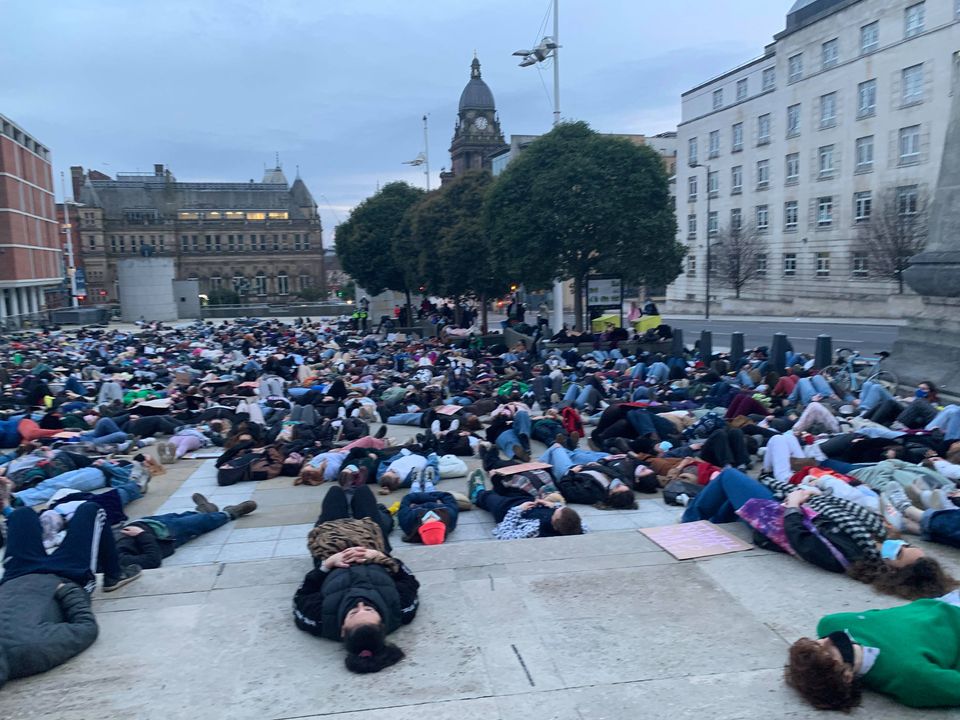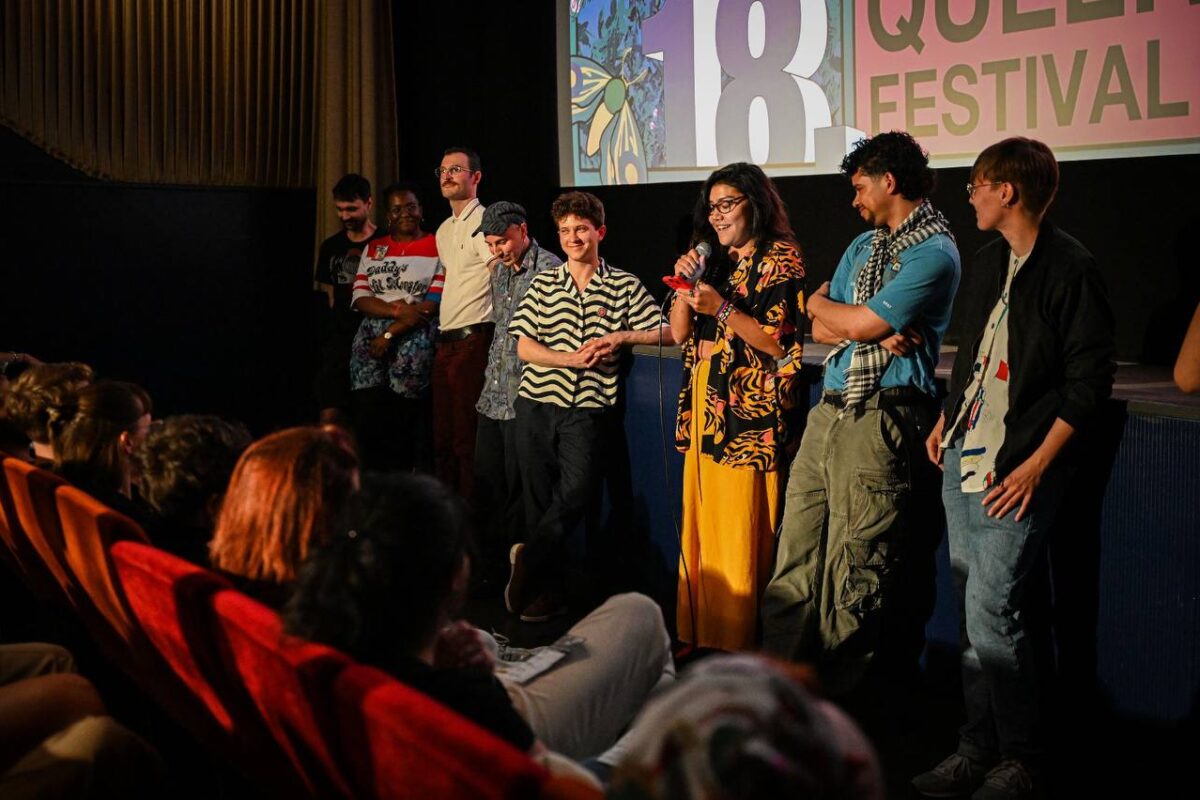The murder of Sarah Everard, a 33-year-old woman walking home along main roads in London, throws into sharp relief the continuing reality of sexual harassment and abuse and, ultimately, the possibility of murder, faced by every woman, every day of our lives. It happens everywhere: at work or socially as “banter”; at home in the rising incidences of domestic violence; in flats, “health clubs”, in palaces and alleyways as victims of trafficking from men of all classes. It also happens on the streets, by opportunistic abusers who could be anyone from a passing pre-teen, a drunk, or a member of the diplomatic protection corps.
In 1973, as a 15-year-old schoolgirl, waiting for my bus in genteel Lytham-St Anne’s, a man muttered horrible words to me. As children, we girls learned to avoid a local sweet shop, where “that man lifts you up to look at your knickers”; baffled and embarrassed I avoided my elderly next door neighbour on the bus who took it upon himself to berate me, age 12, for “the effect [I had] on men”. These are only the least of my experiences; I really do understand how frightening it is to be a girl, a young woman, and an adult woman— for these experiences don’t stop with advancing age.
I reached adulthood in the late 1970s at the time of the “Yorkshire Ripper,” but also at the time of mass feminist protests. Inspired by the equal pay strikes of women Ford workers and the Grunwick women (Asian women, memorably supported by Yorkshire miners) by protests against Miss World in 1970, we campaigned for abortion rights, for equal pay, for maternity pay, for employment rights, against domestic violence, against racism, for the right to refuge from domestic violence, for the housing rights of women fleeing violence, for LGBT rights. We supported the Miners’ Great Strike whilst arguing with them that their sexism undermined united working-class fightback against the bosses.
Decade after decade, women have been told that we should not wear short skirts or tight jeans; that we should “stay at home after dark”, “walk in pairs”, “stay sober”, “take the safe route”. We’re told that we ”asked for it”, that “it” doesn’t happen to “respectable women”, and conversely that sex workers “can’t be raped”. Sarah Everard, a professional woman in her 30s, was walking home, sober, dressed in loose trousers and an anorak at 21:00h on a main road. And yet a man felt entitled to kidnap and kill her.
In south Leeds, where I live, opponents of a Managed Zone of sex work, demand “more police on the streets”, but it appears that it was a policeman who killed Sarah Everard. So the issue isn’t police presence or absence. And it isn’t what women wear or don’t wear. It isn’t how we walk, whether we’re drunk or sober, whether we wear high heels, tight jeans, flat shoes or trousers, whether we are “respectable women” or sex workers. The issue appears to be an ingrained attitude among some, too many, men who think women of any age, any shape, and any class are “fair game” and that sexual harassment and abuse of women is just fine.
Like thousands of other women, I was outraged when police first attempted to ban the vigils called to honour the memory of Sarah Everard. Hearing of plans for a local, socially distanced and masked vigil, I wrote an article for a local news site, expressing these sentiments and telling readers about the event. I said I’d be attending, that no woman is “fair game”. There is no excuse for male violence against women. No excuse for rape or sexual assault. No excuse for sexual abuse. No excuse for physical or verbal sexual harassment. Banter is not funny.
Overnight, the Courts delivered an ambiguous judgment and local RTS groups began to back down, telling protestors to stay at home and protest online. The Leeds demo was replaced by an online vigil. But we don’t reclaim streets and the night by going online the moment the police and government challenge the right to protest. We reclaim by being on the streets. Look at Hong Kong. Look at Myanmar.
Home is the most dangerous place for women: 118 women in the UK have been killed during lockdown this year alone, and you don’t reclaim the streets by staying at home. We cannot “end male violence” by cowering in our homes WHERE MOST MALE VIOLENCE HAPPENS!
In Clapham Common in London, thousands peacefully attended the vigil for Sarah Everard. Despite media claims that people observing the vigil caused trouble, the real trouble came from the police wading in and disrespecting the lived experience and repressed grief of women who were blamed.
Meanwhile, in Leeds, I was woken on the following morning by a visit from the police who “advised” me that under the Coronavirus Act I was liable to be perceived to be an organiser of an illegal demonstration and to be fined £10,000. He conceded, however, that it was legal for me to take my 1-hour state-sanctioned exercise in the park where the vigil was to have been held, at 18:00h, and to speak – socially distanced – to anyone I met there. There were to be “no speeches” though. So that’s what I did, and so did 20 other people from our small area of Leeds, laying tributes in memory of Sarah and all the women killed by an institutionally sexist society.
Three days after the vigils, the British government voted in favour of the Police, Crime, Sentencing and Courts Bill. The bill would give cops the power to block protests that cause “serious disruption” to an organisation or have a “relevant impact” on people nearby. These vague clauses give the cops a green light to stop any action that has an effect – and it’s clear that protests such as ours will be targeted.
We should not live our lives in fear, for a life lived in fear is a life half-lived. I refuse to live in fear.



